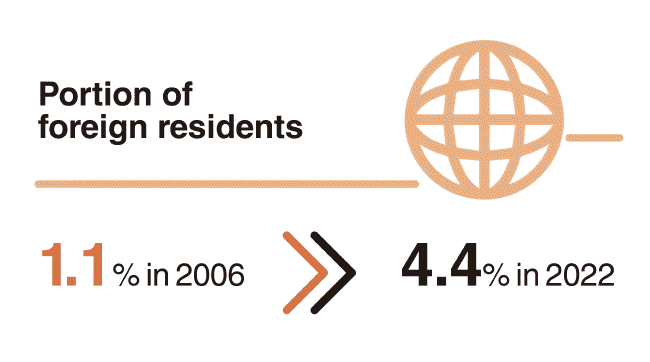
People of non-Korean origin are increasingly making their presence felt in South Korea, turning a society historically characterized by cultural and racial homogeneity into one that is increasingly diverse.
In 2006, a mere 1.1 percent of people living in Korea were foreign nationals, naturalized Koreans or their children.
As of Nov. 1, 2022, their share rose to a record-high 4.4 percent, with 226 million individuals residing in the country for more than 90 days at the point of the survey.
This breaks down to approximately 403,000 foreign workers, 397,000 foreign nationals of Korean descent, 189,000 foreign students, 176,000 marriage immigrants, 224,000 naturalized Koreans, and 282,000 children born in Korea to those mentioned above.
Of all marriages registered in 2022, 9.1 percent were between a Korean and a non-Korean, still low compared to the pre-pandemic peak of 10.3 percent reported in 2019.
The number of multicultural households was 399,396 out of the total 21.7 million in 2022, an increase from 299,241 in 2015.
Is South Korea really becoming more diverse? The Korea Herald offers a reality check by examining data on representation in the fields of politics, business and society according to gender, age, ability, sexual identity and nationality. A complete version of this series was printed in the Jan. 2 edition of The Korea Herald. – Ed.




![[Herald Interview] How Gopizza got big in India](http://res.heraldm.com/phpwas/restmb_idxmake.php?idx=644&simg=/content/image/2024/11/20/20241120050057_0.jpg)


![[KH Explains] Dissecting Hyundai Motor's lobbying in US](http://res.heraldm.com/phpwas/restmb_idxmake.php?idx=644&simg=/content/image/2024/11/20/20241120050034_0.jpg)